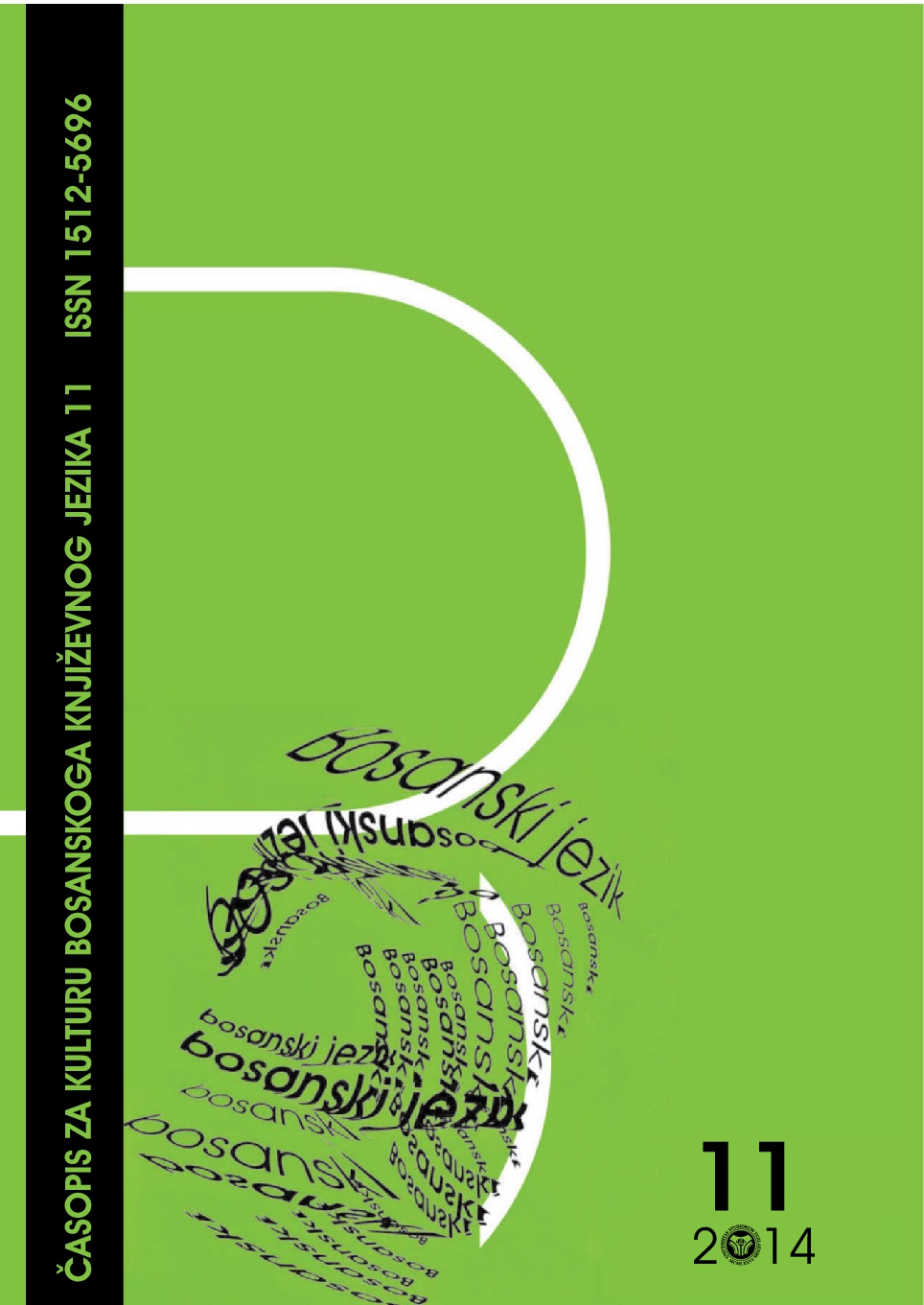Homogenost postmoderne pripovjedne situacije
Homogenity of Postmodern Narrative Situations
Author(s): Larisa Softić-GasalSubject(s): Gender Studies, Semantics, Bosnian Literature, South Slavic Languages, Theory of Literature
Published by: Filozofski fakultet Univerziteta u Tuzli
Keywords: short stories; transition; inhuman relations; war story; fiction stories; symbolic stories;
Summary/Abstract: A common characteristic of various models of Bosnian short stories, during the period of transition, confirms the degree of homogeneity of postmodern narrative situations, especially when it comes to the story identity or infantilization. The dominant models, including some previous attempts of their identification, include: lyric-psychological model of the story entitled Biljke su nešto drugo (trans. “Plants are something else”) by Alma Lazarevska (great skill in handling details, specifics, existential contents that develop into existential symbols); symbolic story entitled Staklo (trans. “Glass”) by Nenad Veličković which by its symbolic effectiveness represents the pinnacle of post-modern storytelling in Bosnia and Herzegovina; story/testimony of recent history entitled Most na kopnu (trans.”The Bridge on Land”) by Muharem Bazdulj (the history of ideas and the futility of history within eternal returns of the same essential matters); lyric story entitled Ruganje duše (trans. “ The Soul’s Mocking”) by Goran Samardžić, whose poetry is the basic structural element of the story ( story politicization, inhuman relations); model of the historical grotesque entitled Harmonika (trans.” The Accordion”) by Aleksandar Hemon. The following stories that belong to this model of short stories Tajna džema od malina (trans.”The Secret of Raspberry Jam) by Karim Zaimović and Život i djelo Alphonsea Kaudersa (trans.” The Life and Works of Alphonse Kauders”) by Aleksandar Hemon as two stories of a liminal genre which start from the poetics of detective fiction and proceed to the postmodern historical carnivalistic grotesque. The most relevant example of it is Harmonika (trans. “the Accordion”) by Aleksandar Hemon; war story (a model of moral documentarism based on the poetics of testimony). Here we have to mention the collection of short stories Pod pritiskom (trans. “Under Pressure”) by Faruk Šehić as short stories featuring psychological victory over war. journalistic writing (Od sumraka do zore. Trans.”From Dusk to Dawn”by Faruk Šehić); thrilling fiction story (A godine su prolazile. Trans. “And Years Were Passing By” by Karim Zaimović); fiction stories (Čovjek sa Šiljatim licem i Tajna džema od malina. Trans. “The Man with a Pointed Face” and The Secret of Raspberry Jam by Karim Zaimović). The Secret of Raspberry Jam also represents a model of the stećak of ‘war prose’; ‘war prose’ featuring longing for family happiness and human powerlessness to understand divine justice. (Šišanje. Trans. “Haircut” by Goran Samardžić, Kroz šljivike i livade. (trans. “Through Plum Orchards and Meadows”) by Muharem Bazdulj, Jedan život. (trans. “One life”) by Nenad Veličković, Senke oblaka (trans. “The Shadows of Clouds) by Vladimir Pištalo, Mljet by Aleksandar Hemon; story/quest for identity through war (Zelena jabuka iz Drine. Trans. “A Green Apple from the Drina” by Isnam Taljić; stories featuring communication problems of modern man (Dnevni dijalozi. Trans.”- Daily Dialogues” by Lamija Begagić); stories which meet a gender criterion (Dvije male priče. Trans.”Two Short Stories” by Zlatko Topčić).
Journal: Bosanski jezik
- Issue Year: 2014
- Issue No: 11
- Page Range: 76-91
- Page Count: 16
- Language: Bosnian

